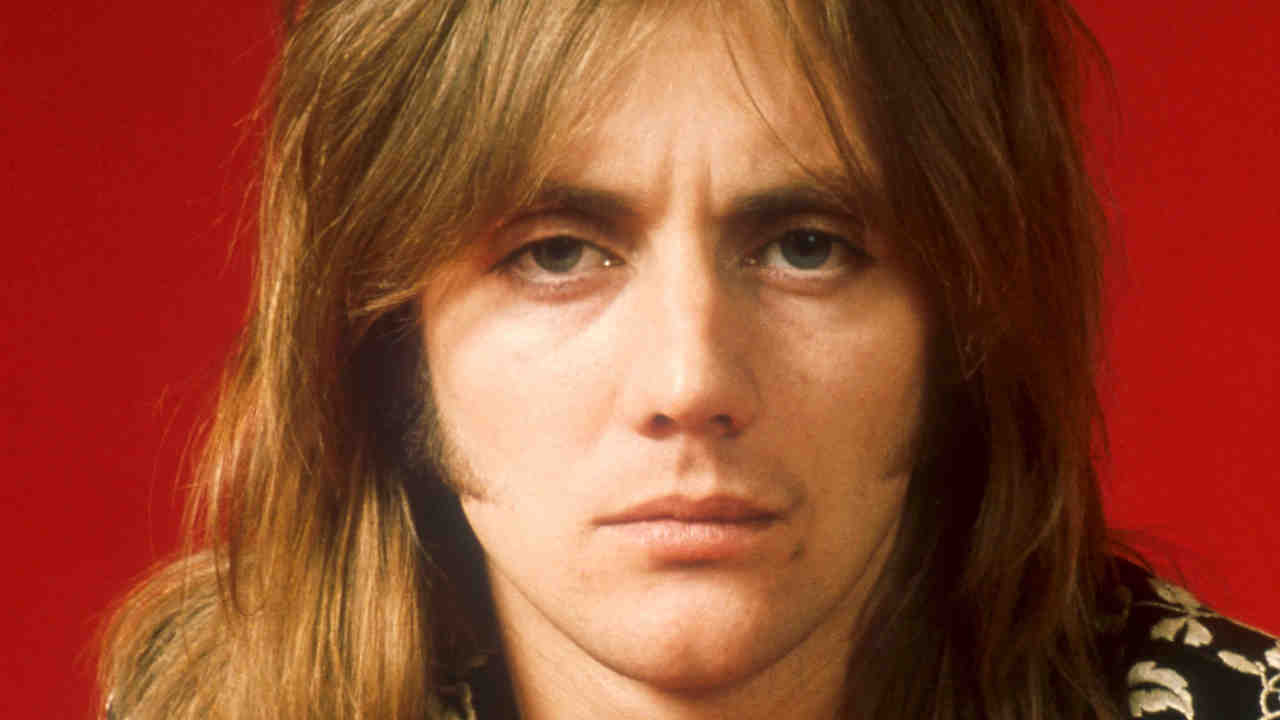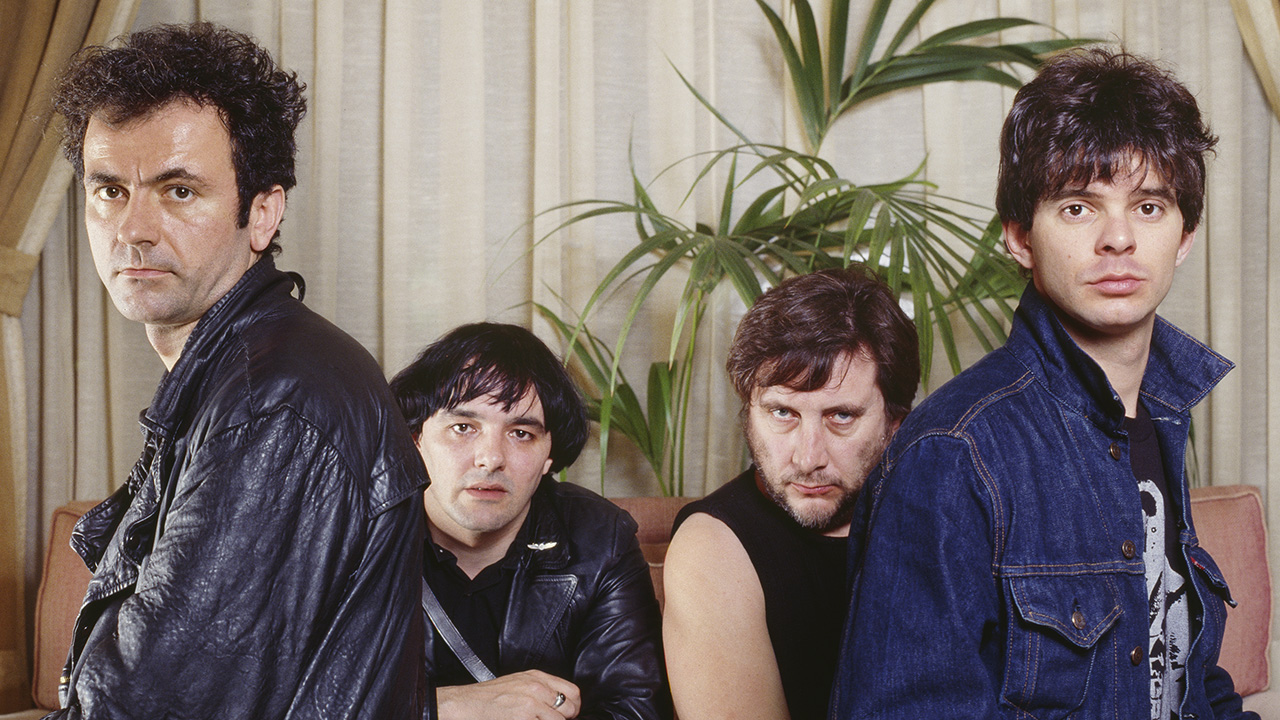“I didn’t really get the music, to be honest. It was a bit too prog for me”: The prog superstars who tried to steal drummer Roger Taylor from Queen
The history of two hugely successful bands could have been very different

Select the newsletters you’d like to receive. Then, add your email to sign up.
You are now subscribed
Your newsletter sign-up was successful
Want to add more newsletters?

Every Friday
Louder
Louder’s weekly newsletter is jam-packed with the team’s personal highlights from the last seven days, including features, breaking news, reviews and tons of juicy exclusives from the world of alternative music.

Every Friday
Classic Rock
The Classic Rock newsletter is an essential read for the discerning rock fan. Every week we bring you the news, reviews and the very best features and interviews from our extensive archive. Written by rock fans for rock fans.

Every Friday
Metal Hammer
For the last four decades Metal Hammer has been the world’s greatest metal magazine. Created by metalheads for metalheads, ‘Hammer takes you behind the scenes, closer to the action, and nearer to the bands that you love the most.

Every Friday
Prog
The Prog newsletter brings you the very best of Prog Magazine and our website, every Friday. We'll deliver you the very latest news from the Prog universe, informative features and archive material from Prog’s impressive vault.
Few bands have had a career to match Queen. Formed in London in 1970, they became one of the biggest groups on the planet thanks to huge hits such as Bohemian Rhapsody, Another One Bites The Dust and Radio GaGa. Their mix of anthemic songwriting, uplifting musicianship and the charisma of frontman Freddie Mercury marked them out as utterly unique compared to such 70s peers as Led Zeppelin, David Bowie and Black Sabbath.
Mercury’s death in 1991 seemingly marked the end of the band, but guitarist Brian May and drummer Roger Taylor returned in 2004 with former Free/Bad Company singer Paul Rodgers under the name Queen + Paul Rodgers (bassist John Deacon sat out the reunion, having officially retired). Since 2011, the revitalised band have been fronted by American Idol runner-up Adam Lambert, playing a string of acclaimed shows and releasing the UK No.1 live album Live Around The World. Those later line-up changes helped keep the band alive, with a string of world tours and the huge success of the 2018 biopic Bohemian Rhapsody introducing them to new generations of fans.
They may have changed singers a couple of times since their return, but amazingly, the band’s classic line up stayed the same for virtually all of its original existence. Mercury, May and Taylor founded the band in 1970, and they were joined the following year by Deacon – the same four men who would make up Queen for the next 20 years.
But it could have been very different. Roger Taylor, whose powerhouse drumming would become one of the band’s sonic signatures was almost poached by a rival band – one whose success in the 80s would go on to match that of Queen.
Like many other bands who started out in the early 70s, Queen spent their first few years playing the club circuit. Their early gigs included shows at such venues as Truro Town Hall, Liverpool’s Cavern Club and famed London club The Marquee.
Another fledging band putting in the hours on the same circuit were Genesis, who were gradually transforming into something more theatrical and progressive. It’s unclear when the two groups’ paths first crossed, but Queen clearly made an impression on the Peter Gabriel-fronted band. When Genesis drummer John Mayhew announced that he was leaving in the summer of 1970, they reached out to Taylor in the hope that he might be interested in joining.
“Well, they invited me to the studio, then we went to the pub,” Taylor told Classic Rock in 2020, on the band’s 50th anniversary. “They didn’t say, ‘Do you want to join the group?’, but I get the impression that’s what they wanted because their drummer had left.”
Sign up below to get the latest from Classic Rock, plus exclusive special offers, direct to your inbox!
Taylor was flattered by the offer, but he wasn’t tempted to desert his own band – not least because he wasn’t a huge fan of Genesis’ complex songs.
“I didn’t really get the music, to be honest,” he admitted. “It was a bit too prog for me. But they’re all lovely people.”
In the end Genesis opted for Phil Collins, a former child star who had most recently been in the band Flaming Youth. With Collins behind the drums, Genesis established themselves as leading lights of the emerging progressive rock scene. After Peter Gabriel’s departure in 1974, he took on the additional role of frontman, helping lead the band to huge success with albums such as Duke, Abacab, Invisible Touch and We Can’t Dance.
Genesis weren’t the only band interested in poaching Taylor. In the mid-70s, shortly after Queen supported Mott The Hoople on what would be one of the latter’s last tours before they split, the latter’s singer Ian Hunter and guitarist Mick Ronson asked the drummer if he was interested in joining them in an all-star trio.
“I had a wonderful offer from Mick Ronson and Ian Hunter,” Taylor said. “It was going to be called Hunter Ronson Taylor. That would have been good.”
The reason Taylor turned that one down was less to do with the music they were making and more to do with the bond he had with his Queen bandmates by that point. “I believed there was something about the four of us as a band that was special,” he said. “And I was right.”
Classic Rock is the online home of the world's best rock'n'roll magazine. We bring you breaking news, exclusive interviews and behind-the-scenes features, as well as unrivalled access to the biggest names in rock music; from Led Zeppelin to Deep Purple, Guns N’ Roses to the Rolling Stones, AC/DC to the Sex Pistols, and everything in between. Our expert writers bring you the very best on established and emerging bands plus everything you need to know about the mightiest new music releases.

